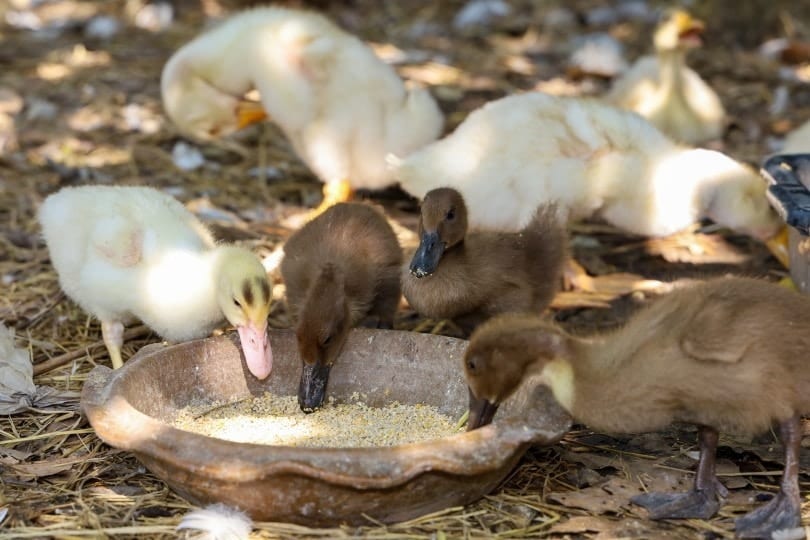Ducks are members of the Anatidae family and are related to swans, geese, and seabirds such as gannets. There are many different breeds of ducks bred for meat, eggs, or even pets! Most of us have fed wild ducks at one point or another in our lives but did we do it right?
Baby ducks are born with a natural instinct to find food. They will eat anything they can find from worms to plants, so their diet is usually referred to as omnivorous. Whether you have a pet duck or are wondering how to feed the ducks in a pond near you, read on to learn more about ducks and their specific dietary needs.

The Wild Duckling
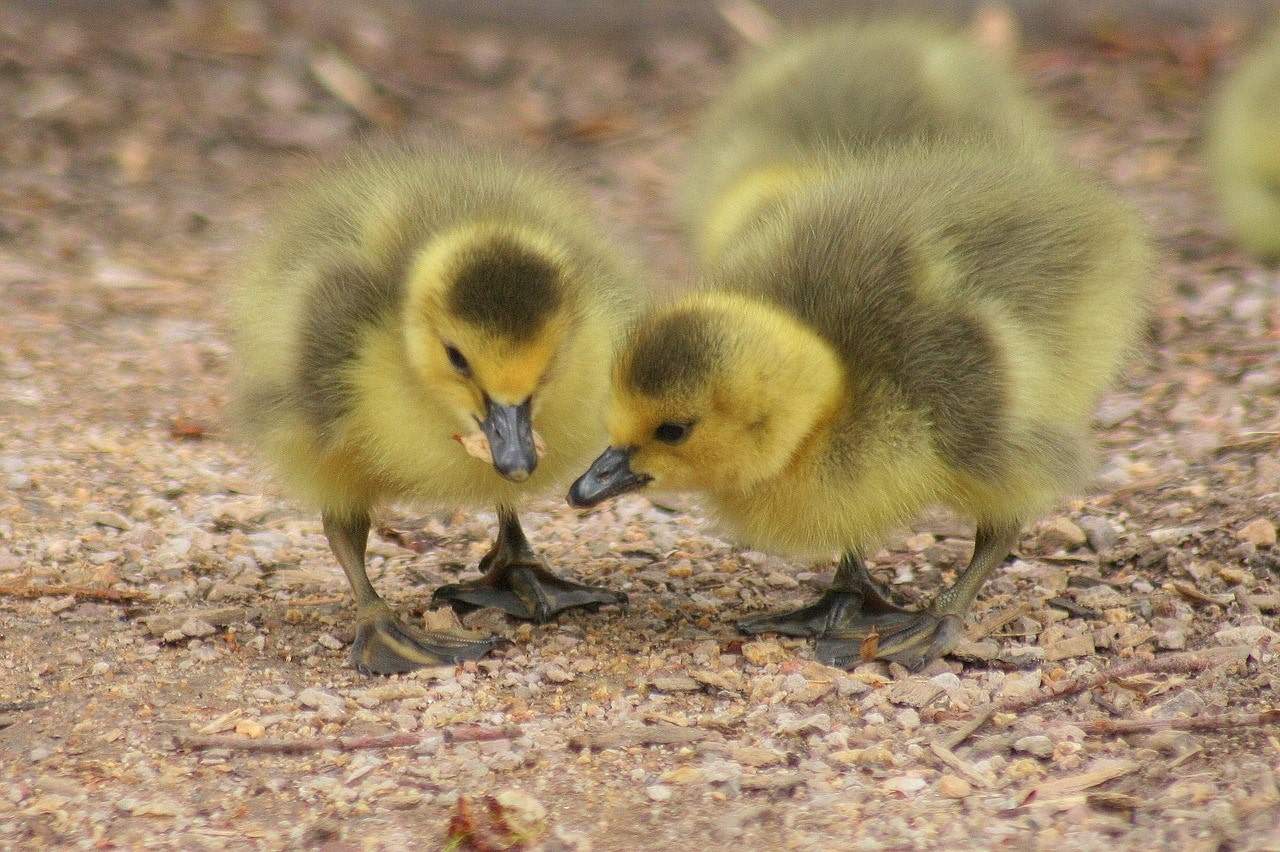
In the wild, ducklings hatch from their eggs and then stay close to their mother. She leads them to a suitable area for the ducklings, where they can find food and water.
A wild baby duckling will eat almost anything from worms and insects to algae and plants. When the weather is warm, they may feed during daylight hours. However, as winter approaches in colder climates, they will need to stay near water as their food freezes over.
They also eat a great deal of grass and weeds in the summer, which can cause them to have difficulty digesting during the winter because it makes them too full. This can be dangerous because their stomachs may not stretch as they begin to eat other foods.
As they grow, their diets change to include more insects and even small fish.
Caring for a Pet Duckling
If you have a pet duck at home, it’s essential to feed them properly to grow healthy and strong! You should also make sure your duck has plenty of fresh water to drink every day.
- Related Read: How to Take Care of a Baby Duckling (Care Sheet & Guide)
What to Feed?
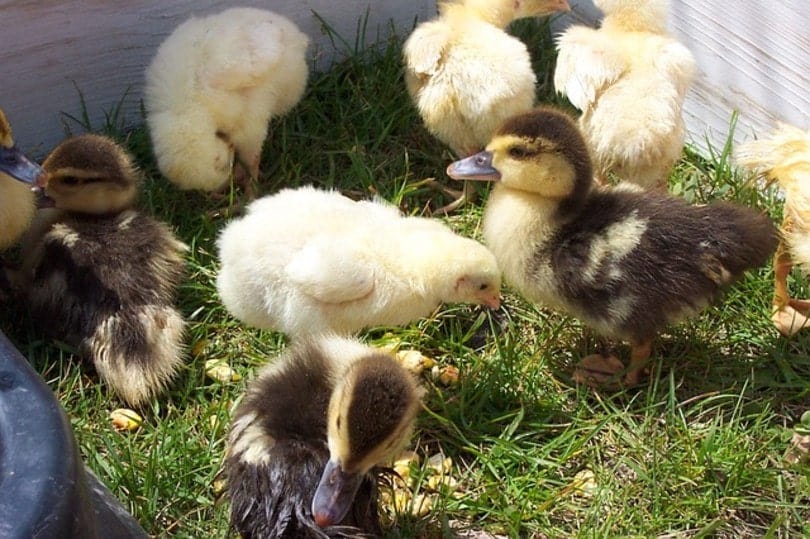
The first day they emerge from their egg, take out your baby duck starter kit.
In this kit, you can find food pellets for ducks that are soft enough for their delicate beaks to feed on. You can also find supplements such as calcium vitamins along with a duck toy to play with within your pond or water area.
After a few weeks, you should be able to start feeding your duckling small insects and worms. You can let them roam around in a safe area of your yard if possible, or you can put food on the ground for them to find.
Be sure always to keep an eye on young ducks when they are eating so that they don’t choke. Also, make sure to remove any leftover food after a few hours to prevent spoiling.

How Often to Feed?
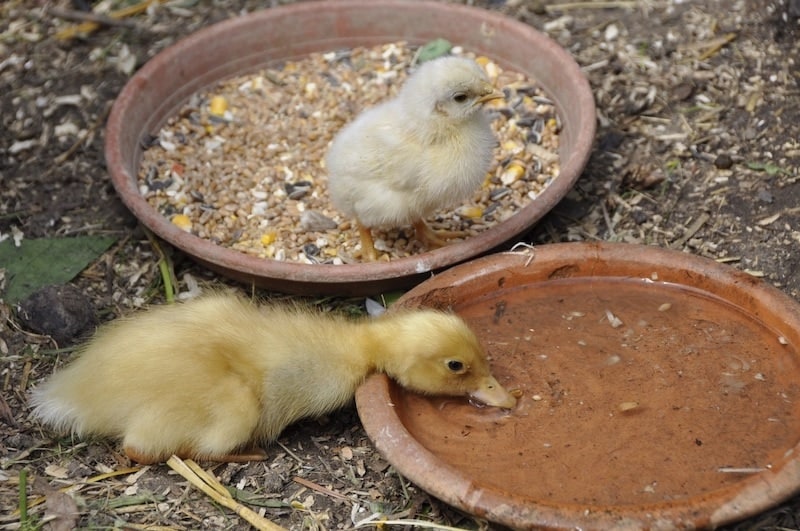
Ducklings grow very quickly, reaching full maturity within several months. Some breeds of duckling grow faster than others, but there is no such thing as too much food when it comes to baby ducks! This is mainly due to their fast digestion rate, which means they eat their food quickly and then look for more. You can feed your duckling a few worms or insects every day and fish at least twice a week to make sure they are growing as much as possible.
While some recommend feeding your ducklings on-demand or every four hours, it is also acceptable to let them free-feed. Free-feeding means that food is always available to your ducklings, and they eat when their body tells them to.
- Related Read: What Do Ducks Eat in the Wild and as Pets?
Common Health Problems from Feeding
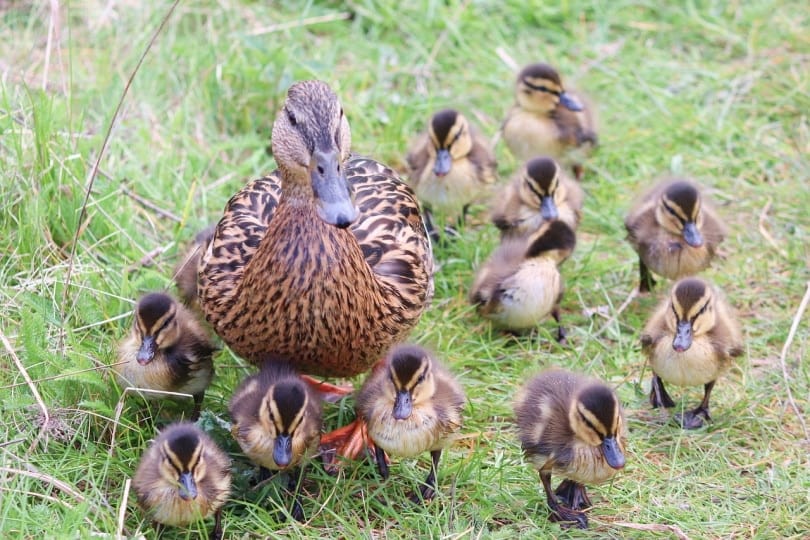
If you give your ducklings food that they can’t eat, like large fish bones or small rocks, their bills will become overgrown. This can be painful for them and make it difficult for them to eat at all.
Another common issue is that they may ingest gravel from your yard or pebbles from the bottom of a pond. If this happens, the stones will cause blockages in their digestive system, killing them within hours if left untreated.
If you fed your ducklings pebbles, take them to the vet immediately so they can have their stomachs washed in a saline solution. This will remove all of the gravel and small rocks that are eroding their insides.
Ducklings also need a balanced diet with a wide variety of nutrients and vitamins. Deficiencies in either or both of these can make your ducklings weak and lethargic. They may be tired, fall over frequently or not eat at all.
- Related Read: Do Geese Make Good Pets? What You Need to Know!
Should You Feed Wild ducks?
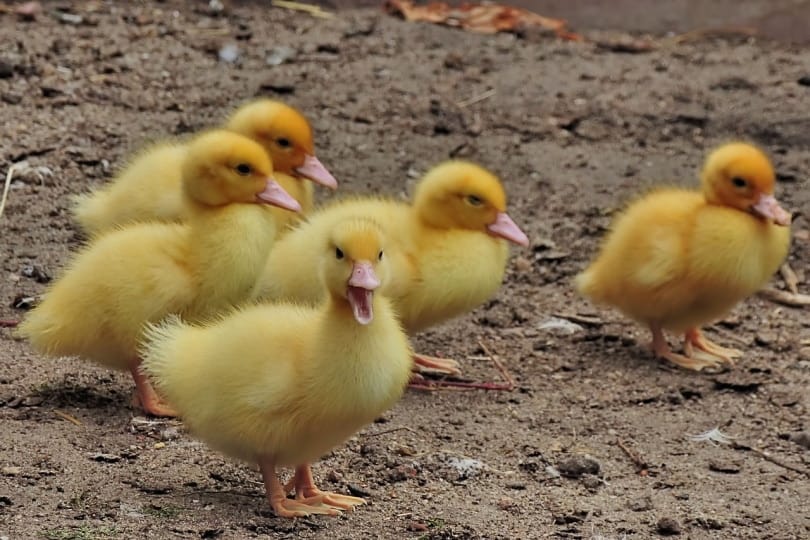
There is a great amount of confusion surrounding the question of whether or not you should feed wild ducks. Many people argue that feeding wild animals will make them dependent on humans for food, and eventually, the animals may become aggressive and dangerous. Others insist that it is safe to feed wild ducks if you make sure not to attract predators such as hawks and foxes by leaving crumbs on the ground.
It is considered quite safe to feed ducks in designated areas such as nature reserves, which are protected from predators, and have plenty of water for the animals to drink. However, feeding wild ducks directly on a pond or lake can attract pests such as seagulls and geese. This may make it difficult for other birds and animals to find food during the winter, putting them at risk of starvation.
If you want to feed wild ducks, it is always best to buy organic food and bring fresh water in a bucket instead of leaving out crumbs from your kitchen.
- Related Read: How Often Do Ducks Lay Eggs?

Final Thoughts
Ducks can make for extraordinary pets. They are cute birds that love human companionship and can bring great joy to your life. With proper care, you could have a new best friend for up to 20 years! The most important factor in whether or not your duck reaches that age is how you feed it.
Be sure to maintain a balanced diet that contains all the nutrients they need, especially as hatchlings. Always do your research before feeding your pet duck a new food.
- Next on your reading list: What Do Ducklings Eat? What To Feed Them?
Featured Image Credit: PUMPZA, Shutterstock
